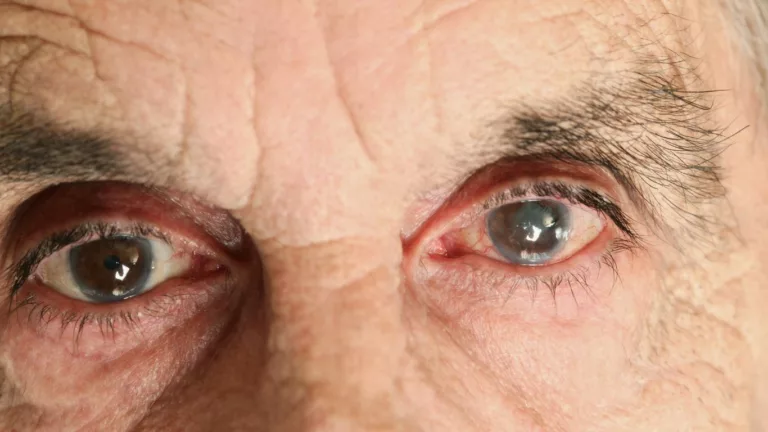Discover Why Asthma Causes Excess Phlegm in Morning and How to Stop It
Waking up with a cough and a mouthful of thick, stubborn phlegm is something many people with asthma know all too well. If you’ve ever wondered, can asthma cause excess phlegm in the morning—the answer is a resounding yes. As a pulmonary nurse practitioner with years of experience helping patients manage asthma, I’ve seen firsthand how mucus production can spike overnight and become a frustrating part of the daily struggle for many.
Phlegm, or mucus, is your body’s natural defense mechanism, designed to trap dust, allergens, and other irritants. But for people with asthma, this protective response can sometimes go into overdrive, especially during the night and early morning. This buildup often results in that unpleasant sensation of congestion and frequent throat clearing when you first wake up.
Why Does Asthma Cause Excess Phlegm in the Morning?

The Role of Airway Inflammation
Asthma is primarily an inflammatory disease. The lining of your airways becomes swollen and irritated, which leads to increased mucus production. At night, when your body is at rest, this inflammation doesn’t just disappear—in fact, it can get worse. The inflammation causes the mucus glands in your bronchial tubes to pump out more secretions, which then accumulate in your airways. This excess mucus is exactly what you feel as phlegm in the morning.
Why Mucus Builds Up Overnight
During the day, coughing, swallowing, and general movement help clear mucus from the lungs and throat. But at night, especially when you’re lying down, the clearance slows down. Gravity isn’t helping, and mucus starts pooling in your airways. Combine this with asthma-related airway constriction and irritation, and you have a recipe for waking up with that thick, often sticky phlegm that just won’t quit.
My Personal Experience with Morning Phlegm in Asthma Patients
From my clinical practice, one thing I often tell patients is that morning phlegm isn’t just a nuisance—it’s a signal. When a patient describes waking up with a persistent cough and mucus, it often means their asthma isn’t as well-controlled as it could be. I’ve worked with many individuals who initially ignored these symptoms, thinking it was just a part of “having asthma.” But addressing this excess phlegm often leads to better overall control of their asthma symptoms and fewer nighttime flare-ups.
Common Triggers That Make Morning Phlegm Worse

Environmental Allergens and Irritants
- Dust mites: These tiny creatures thrive in bedding and mattresses, making the bedroom a hotspot for irritation.
- Pet dander: If you sleep with pets or have them in the bedroom, their dander can increase mucus production overnight.
- Cold air: Breathing in cold, dry air can trigger the airways to produce more mucus as a defense.
Asthma Medications and Their Impact
Interestingly, sometimes the medications used to treat asthma can influence mucus production. For example, inhaled corticosteroids, which reduce inflammation, usually help decrease mucus. However, if a patient isn’t using them consistently or correctly, mucus can continue to build up unchecked. On the other hand, overuse of certain bronchodilators without controlling inflammation might reduce airway constriction but not address mucus buildup.
How to Manage Excess Phlegm Caused by Asthma in the Morning

Simple Habits to Improve Morning Symptoms
- Keep your sleeping environment clean: Regularly wash bedding in hot water and use allergen-proof covers on pillows and mattresses.
- Use a humidifier: Adding moisture to dry air can reduce airway irritation and mucus thickening.
- Elevate your head while sleeping: This helps mucus drain better and prevents it from pooling in your throat.
- Stay hydrated: Drinking plenty of fluids thins mucus, making it easier to clear.
When to Talk to Your Healthcare Provider
If you notice your morning phlegm getting worse or accompanied by wheezing, shortness of breath, or chest tightness, it’s a clear sign to check in with your provider. Adjusting your asthma action plan, medication doses, or adding therapies like nebulizers can make a big difference.
Understanding the Connection Between Asthma and Morning Phlegm

The Biology Behind Mucus Overproduction
Let’s dig a bit deeper into why asthma leads to that annoying excess phlegm, especially in the morning. Asthma causes chronic inflammation of the airways, which triggers mucus glands to go into overdrive. Think of it as your body’s defense system kicking into high gear, trying to trap and flush out irritants. The problem? This mucus isn’t just watery—it becomes thick and sticky, making it hard to clear.
From my years working closely with asthma patients, I’ve noticed that the severity of morning phlegm often correlates with how well a person’s inflammation is controlled. If inflammation isn’t managed effectively, the airways stay hypersensitive, which means more mucus and more morning discomfort. This cycle can sometimes feel endless if not properly addressed.
Why Morning Is the Worst Time
Nighttime is prime time for mucus buildup due to several factors working against you:
- Reduced coughing: When you sleep, the natural cough reflex that helps clear mucus is suppressed.
- Body position: Lying flat slows mucus drainage, so it pools in your airways.
- Circadian rhythms: Your body’s natural hormones fluctuate, and some inflammatory markers peak at night, making your airways more reactive.
So, waking up with a chest full of mucus is no accident—it’s a direct outcome of how asthma messes with your airway’s normal function while you’re resting.
Practical Tips to Reduce Morning Phlegm When You Have Asthma

Optimizing Your Asthma Treatment Plan
One of the best ways to tackle morning phlegm is to ensure your asthma medications are working well for you. As a pulmonary nurse practitioner, I can’t stress enough how important it is to use inhaled corticosteroids consistently. These meds reduce inflammation, which directly cuts down mucus production. If you’re skipping doses or only using your inhaler when symptoms flare up, you might be missing the mark.
Besides corticosteroids, some patients benefit from adding a long-acting bronchodilator. These help keep the airways open overnight, reducing irritation and mucus buildup. But remember, no two asthma cases are the same. Personalizing your treatment with your healthcare provider ensures you’re addressing both airway inflammation and mucus control effectively.
Nighttime Routines That Help
Simple changes before bed can make a surprisingly big difference in how much mucus you wake up with:
- Use your inhaler correctly: Taking your preventer inhaler at night allows it to work through the hours when inflammation tends to worsen.
- Keep your bedroom allergen-free: Dust and pet dander don’t take a break just because you’re asleep. Regular cleaning and allergen-proof bedding covers can lower triggers that stimulate mucus.
- Hydrate well: Drinking water throughout the day thins mucus, so it’s less sticky and easier to clear in the morning.
- Consider a saline nasal spray: If post-nasal drip is adding to your phlegm, a saline spray before bed can rinse irritants out and reduce mucus pooling.
When to Use Additional Therapies
Sometimes, despite best efforts, mucus buildup can become overwhelming. In these cases, tools like nebulizers can be lifesavers. A nebulizer turns your medication into a fine mist, helping it reach deeper into your lungs and loosen mucus effectively. From my experience, patients who incorporate nebulized treatments under their provider’s guidance often report mornings with less congestion and easier breathing.
Chest physiotherapy or airway clearance techniques can also be useful, especially for people who struggle to cough up thick phlegm. These methods help physically move mucus out, reducing the morning buildup and lowering the risk of infections.
Signs That Your Morning Phlegm Needs Medical Attention

When to Be Concerned
Not all morning phlegm means your asthma is out of control, but there are red flags to watch for. You should reach out to your healthcare provider if you notice:
- Increased thickness or change in color of your phlegm—yellow, green, or bloody mucus could signal an infection.
- Worsening shortness of breath or wheezing that doesn’t improve with your usual medications.
- Frequent nighttime coughing that disrupts your sleep regularly.
- Need for more rescue inhaler use than usual.
Early intervention can prevent serious flare-ups and hospital visits. In my practice, patients who are proactive about these signs tend to maintain better asthma control and experience less daily disruption from mucus and other symptoms.
Long-Term Strategies to Manage Morning Phlegm and Asthma

Building a Sustainable Asthma Action Plan
One thing I always emphasize to my patients is that managing asthma—and the frustrating morning phlegm that often comes with it—is a marathon, not a sprint. It’s about building habits and a personalized action plan that fits your life. A solid asthma action plan is your roadmap for recognizing symptoms early, adjusting medications safely, and knowing when to seek medical help.
In my experience, patients who take the time to regularly review and update their action plans with their healthcare provider tend to see less mucus buildup and fewer flare-ups. This includes routine lung function tests and discussions about symptom patterns, like how much phlegm they notice in the morning or if nighttime coughing has increased.
Incorporating Lifestyle Changes That Help
Beyond medication, lifestyle tweaks can make a big difference:
- Quit smoking and avoid smoke exposure: Smoke irritates the airways and causes even more mucus production.
- Maintain a healthy weight: Excess weight can worsen asthma symptoms by putting pressure on your lungs and making inflammation worse.
- Exercise regularly: Moderate physical activity helps strengthen your lungs and improves overall respiratory health.
- Manage stress: Believe it or not, stress can trigger asthma symptoms. Techniques like mindfulness, yoga, or even just simple breathing exercises can calm your airways.
I’ve seen many patients’ morning symptoms improve noticeably after adopting some of these changes, and it’s empowering for them to feel they have control beyond just taking medications.
When Morning Phlegm Signals Something More Serious

Potential Complications to Watch For
While excess phlegm can be a routine part of asthma, sometimes it’s a sign that something more serious is going on. Repeated mucus buildup can increase the risk of lung infections, like bronchitis or pneumonia, which need prompt treatment.
Also, if your morning phlegm becomes chronic and copious, it could hint at other conditions overlapping with asthma, such as chronic bronchitis or sinusitis. In my practice, when patients report these symptoms, I often recommend additional tests like chest X-rays or sputum cultures to rule out infections or other lung diseases.
When to Seek Emergency Care
Never ignore signs of severe asthma exacerbation, which may include:
- Sudden increase in mucus production with difficulty breathing
- Blue lips or fingers (cyanosis)
- Severe wheezing that doesn’t improve with your rescue inhaler
- Extreme fatigue or confusion
These symptoms require immediate medical attention. In my years working in pulmonary care, early intervention has saved many lives and prevented hospitalizations.
Key Takeaways for Living Well with Asthma and Morning Phlegm
So, can asthma cause excess phlegm in the morning? Absolutely. But with the right combination of medical treatment, lifestyle habits, and attention to warning signs, you don’t have to let it control your day.
Remember, every person’s asthma is unique. What works well for one might need tweaking for another. That’s why ongoing communication with your healthcare provider is essential. Together, you can tailor a plan that minimizes morning phlegm and keeps your asthma in check, helping you breathe easier and wake up feeling refreshed.
References
Disclaimer
This article is intended for informational purposes only and does not substitute professional medical advice, diagnosis, or treatment. Always consult your healthcare provider for personalized care and before making any changes to your asthma management plan.

Bianca Nala is a compassionate Nurse Practitioner with a strong background in primary and respiratory care. As a health writer for Healthusias.com, she combines her clinical expertise with a talent for clear, relatable storytelling to help readers better understand their health. Bianca focuses on topics like asthma, COPD, chronic cough, and overall lung health, aiming to simplify complex medical topics without losing accuracy. Whether she’s treating patients or writing articles, Bianca is driven by a single goal: making quality healthcare knowledge accessible to everyone.







